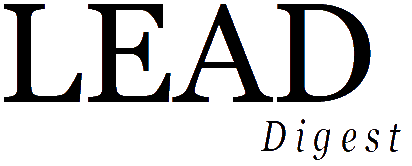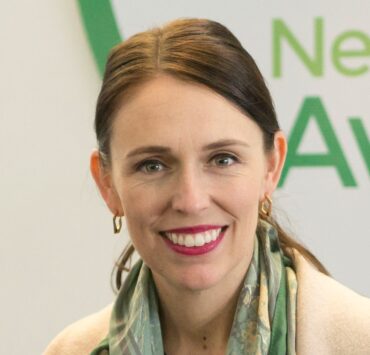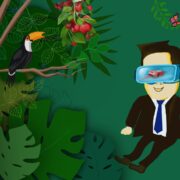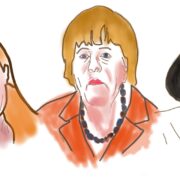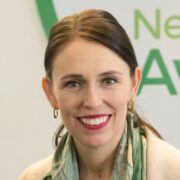GDP — Gross Domestic Pain?
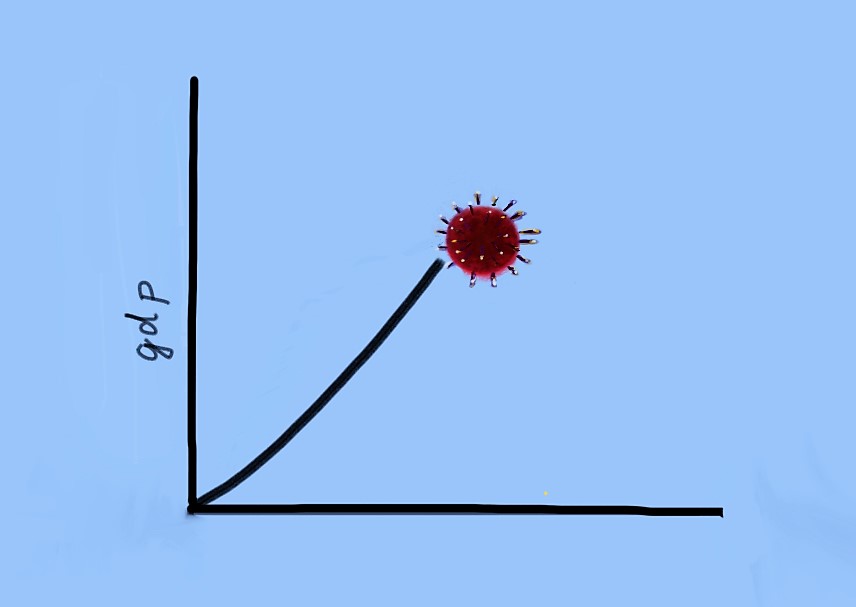
Dr. Sherif Aziz is an engineer turned development strategist, digital…
We in this world have been incorrigibly infatuated with a few terminologies for quite some time; GDP is one such acronym. We are equally averse to a few other things like ‘subsidy’, for example. When we were constantly beleaguered by international organizations, why we should worry about the declining GDP growth rate or why we should push our growth rate to 4% or 8%, depending on whether you are in Europe or Asia, we never turned back and asked a couple of questions. I have no problem with GDP; but can’t comprehend this maddening preoccupation with its growth rate. We were also constantly told why subsidy is the worst thing ever a government should offer. We gulped all of them as if these were god-sent revelations to our problems.
All the while, in life sciences, we knew for sure that growth isn’t always a good word and abnormal growth is considered alarming. We knew there is a natural process of growth from an embryo to an adult. Anything beyond this is abnormal.
Yet, when the manipulative minds asked us to constantly spur economic growth, by hook or crook, we blindly consumed the argument, perhaps because, deep within our minds, we are as avaricious as them. Quick buck is always addictive.
I still do not know how, in a single breath, one can talk about reducing CO2 emissions and at the same time propose ambitious fleet expansion plans to become the busiest transit airport in the world. I wonder how a president or prime minister can even utter the word ‘environment’ when he or she is half the time in an aircraft.
23 September 2019: “My message is, we will be watching you” Greta Thunberg uttered with utmost emotion and she continued, “This is all wrong.……You have stolen my childhood, my dreams with your empty words…. People are suffering, people are dying. The entire ecosystem is collapsing. We are in the beginning of a mass extinction and all you can talk about is money and fairy tales of eternal economic growth…………..Right here and right now is where we draw the line……….The change is coming whether you like it or not”
Was there a prophecy involved in Greta’s pained utterances or in the more sober TED Talk delivered by Bill Gates in 2015[1]. Greta had said ‘right here’ and ‘right now” where she would draw the line. On 21 January 2020, President Trump retorted, “We should reject the environmental prophets of doom”[2] .
In about two months from then, the New York Times had to write about how in China and Italy, the air is strikingly clean and that Venice’s Grand Canal became clear. China had an estimated 25 per cent drop of carbon emissions in February 2020 alone[3]. By April 03, in India, Jalandhar residents woke up to have a view of Himalayan range from hundreds of miles away. On April 08, 2020, reportedly, the super moon could be seen vividly in most parts of the world. So many good things happened to the nature in less than three months; but on account of a sad development — the most intelligent (read as manipulative) creature on earth got locked inside their dwellings. They remained clueless against an invisible enemy.
This pandemic could be nobody’s mistake, in the first place, or it could be the result of somebody’s naïve indulgence. But having happened, the over confidence of the capitalist thought process looks unpardonable, more so if one tries to understand how, Taiwan, just off the coast of China, managed to keep things under control till date. This island of 23 million people was predicted to have the second-highest importation risk for any country, but so far had about 380 cases, with just five deaths over the last three months. What helped them was their early mobilization of specific strategies and plans implemented, with lessons learned during the SARS outbreak, and most importantly their generally high level of investment in healthcare.
Just over a month ago, as India was building a wall to cover up a slum from the visiting Trump, in Trump’s own country, Route №22 from East San Jose to Palo Alto was reported in the media as “Hotel 22”; a perennial running night shelter for the homeless in California, which is home to the Silicon Valley. In reality, digital economies and GDPs aren’t doing much in enhancing “real’ quality of life, not only for the poor but also for the middle class, in most parts of the world. A bit later, the very same state in the US was reeling under COVID 19, this time, with no discrimination between the rich and the poor. As we become more race-centric and border-obsessed, borderless viruses challenged human over confidence! High time, we reset our clocks, politically, socially and economically, for a rather fresh start!
All other kinds of enemies — be it a nation, a community of people, our neighbour or our own family member, are enemies simply created in our minds! Well, when we are in detention, the more real owners of this earth are out enjoying. In my tiny kitchen garden, this time, as the winter was receding, I had many exotic birds as visitors. They were breathing freedom in its full form and feasting like crazy.
We as human beings get long windows of opportunity to live in peace and harmony and progress. This would leave us with more resources, vitality, and overall preparedness to face completely unpredictable and borderless challenges like epidemics or natural disasters. Otherwise, we would have wasted our resources and energy on dirty politics, unending elections, hate mongering, ethnic cleansing, wars and so on, simply writhing like worms, for nothing. COVID-19 is, in fact, a strong lesson, which the world is not yet ready to learn from. We are still politicking!
The ‘global village’ is in the grip of an unprecedented pandemic. Uncontrolled globalisation and neoliberal rationalisation of crony capitalism always justified shareholders’ incessant greed. Eminent people flew thousands of miles to Davos to discuss about environmental protection! Everything became larger than life; but life itself was shrinking to be worthless and voiceless for millions.
A chain is as strong as its weakest link. If humanity has not understood this in the context of the need to have healthy and sustainable communities all around the world, COVID 19, to me, is the last opportunity. If man thinks he has progressed in any way, at least in this century, we should learn to live and let live. People should be allowed to live and thrive in their own original settings without unnatural interferences.
Within countries, it doesn’t make any sense to have a few billionaires and a GDP growth rate of 8%, if all its citizens do not have access to quality healthcare, education and so on. But not everybody needs healthcare in the same scale. Some are born too lucky and remain so till they die; some are not! Such universal healthcare and education aren’t really possible without the beautiful word called ‘subsidy’. We need to subsidize where nature, for its own reasons, has been unkind or inequitable. Not all activities that societies need are commercially viable; they need handholding with profits made elsewhere.
If a group of people or a country has ever thought of enjoying all the fruits of prosperity in isolation, by killing a few, or driving away a few, or building walls, each such thing is simply a time bomb of unimaginable proportion. SARS, Ebola and H1N1 warned you of this; COVID-19 is a very strong reminder. It goes without saying that your health, to a significant level, depends on your neighbour’s well-being. Inequality about the basic needs in life need to be addressed. I would argue that, more than at any time, we should seriously start a well-planned pilot Universal Basic Income in almost all countries.
While I have been vigorously advocating that governments should replace GDP with ‘Quality of Life’, as a measure for their performance, in mid-2019, I had the extreme pleasure of knowing that the New Zealand’s Prime Minister Jacinda Ardern’s new national budget prioritized “well-being” of citizens above traditional bottom-line measures like productivity and economic growth. In her revised policy, spending focused on five government priorities — improving mental health, reducing child poverty, addressing the inequalities faced by indigenous Maori and Pacific islands people, thriving in a digital age, and transitioning to a low-emission, sustainable economy [4].
Capitalism propounds unlimited growth in personal wealth, GDP and so on, whereas what is desirable is quality of life at an optimal resource consumption. Yet when a real crisis came the wealth created by the astounding capitalist regimes collapsed one after the other. It is more or less clear that economic growth serves production but not necessarily distribution.
If you put people first — their quality of life, their dignified living and their security, a sustainable economy with multifarious inter-dependent activities would easily evolve around these real needs. This, in no way, means you need to be minimalistic in your approach; a country could still dream like in a science fiction. Singapore, for instance, could think about building a city above the current city, given the space constraints they have. Dubai, in the middle of the desert, could continue to create advantages to sustain and develop a robust economy. India and Africa, with all kinds of natural resources at their disposal, perhaps, need only create a sense of purpose around the lives of their people, help them behave more rationally, instead of getting caught in unending communal and ethnic conflicts. The model can vary from country to country but should fundamentally be people centric.
As I was working through this paper, my research led me to something called the Doughnut Economic Model propounded by Kate Raworth, the British economist [5]. She argues, and rightly so, that humanity is currently using natural resources far beyond what the planet can afford. Its collective pressure on the planet has already overshot the boundaries. At the same time, a large proportion of people worldwide falls short on life’s essentials, such as food, water, healthcare and political freedom of expression. An Oxfam study in 2018 reported that the world’s 26 richest billionaires own as many assets as the 3.8 billion people, who make up the poorest half of the planet’s population. In other words, today’s global economy is deeply divisive with extreme inequalities. Equality lies only in bearing the brunt of the ecological damages.
If we consider the above situation as a doughnut with the boundaries of human needs at the centre and the ecological ceiling as the outer periphery, then we cannot overshoot the doughnut’s outer crust if we are to safeguard earth’s life-giving systems, on which all our wellbeing fundamentally depends. We must focus on the quality of life of the people, not purely on the economic growth, as mere growth will blow up the doughnut, without even addressing people’s basic needs.
As I write this, the city of Amsterdam, which is always ‘open for business’ in many ways, is reportedly working with Kate Raworth, plotting how the city could embrace the doughnut model to rebuild in a post-COVID-19 world. Knowing the Netherlands reasonably well and going by the alarming numbers of COVID-19 causalities for a such an advanced country, I am more than convinced that this is their way to go, starting with easy and reliable access to healthcare for all. It is high time we put GDP growth rate on the back seat and drive with ‘quality of life’ as the top priority. If we don’t learn that lesson now, we will never!
[1] See https://www.youtube.com/watch?v=6Af6b_wyiwI&fbclid=IwAR3mG0TY4mitHX7OcFAf1dAz_1XvtjZ86qyAF474H77TTHMyfy-eiLNxuEI
[2] https://www.ft.com/content/99f01e92-3c3d-11ea-b232-000f4477fbca
[3] https://www.nytimes.com/2020/03/27/opinion/sunday/coronavirus-climate-change.html?searchResultPosition=1
[4] https://www.nytimes.com/2019/05/22/world/asia/new-zealand-wellbeing-budget.html
[5] https://www.kateraworth.com/doughnut/
What's Your Reaction?
Dr. Sherif Aziz is an engineer turned development strategist, digital entrepreneur and writer. He has been in senior advisory positions relating to development strategies, industrial and entrepreneurship development, e-governance, digital transformation, technology parks and business incubation. Member of management and advisory boards of academic, research and business incubation initiatives. He writes frequently on technology and development, and their impact on the society. He is a cofounder of LEAD Digest, and is an avid screenplay and corporate content writer too. He holds a masters in Industrial Engineering with specialisation in information systems, a PhD in development studies and a second masters in e-Governance, from top ranking institutions. He is also an alumnus of the United Nations University – International Leadership Academy.
